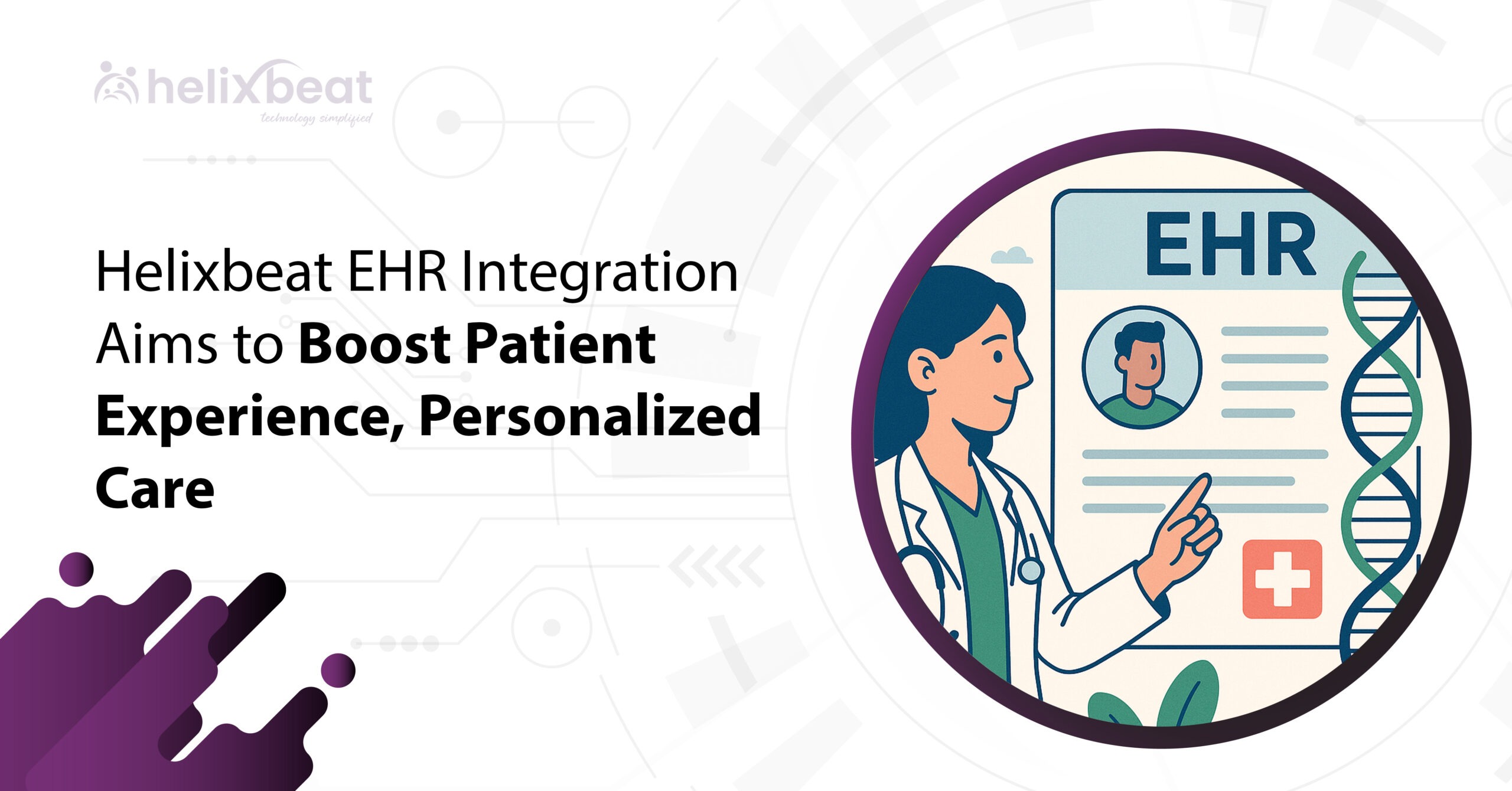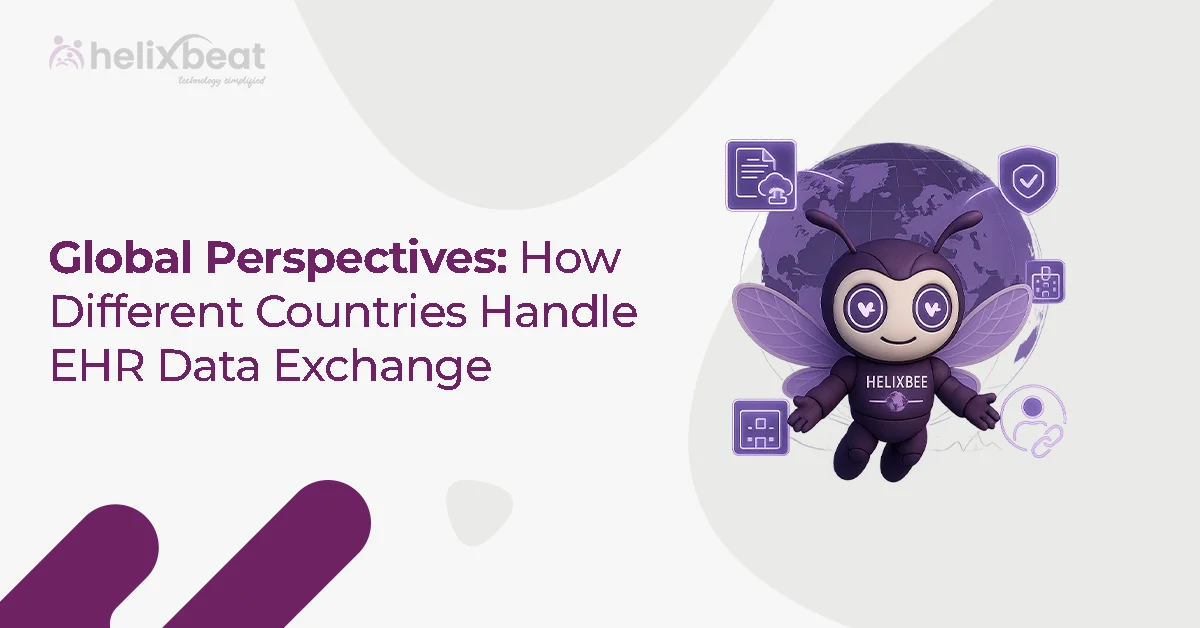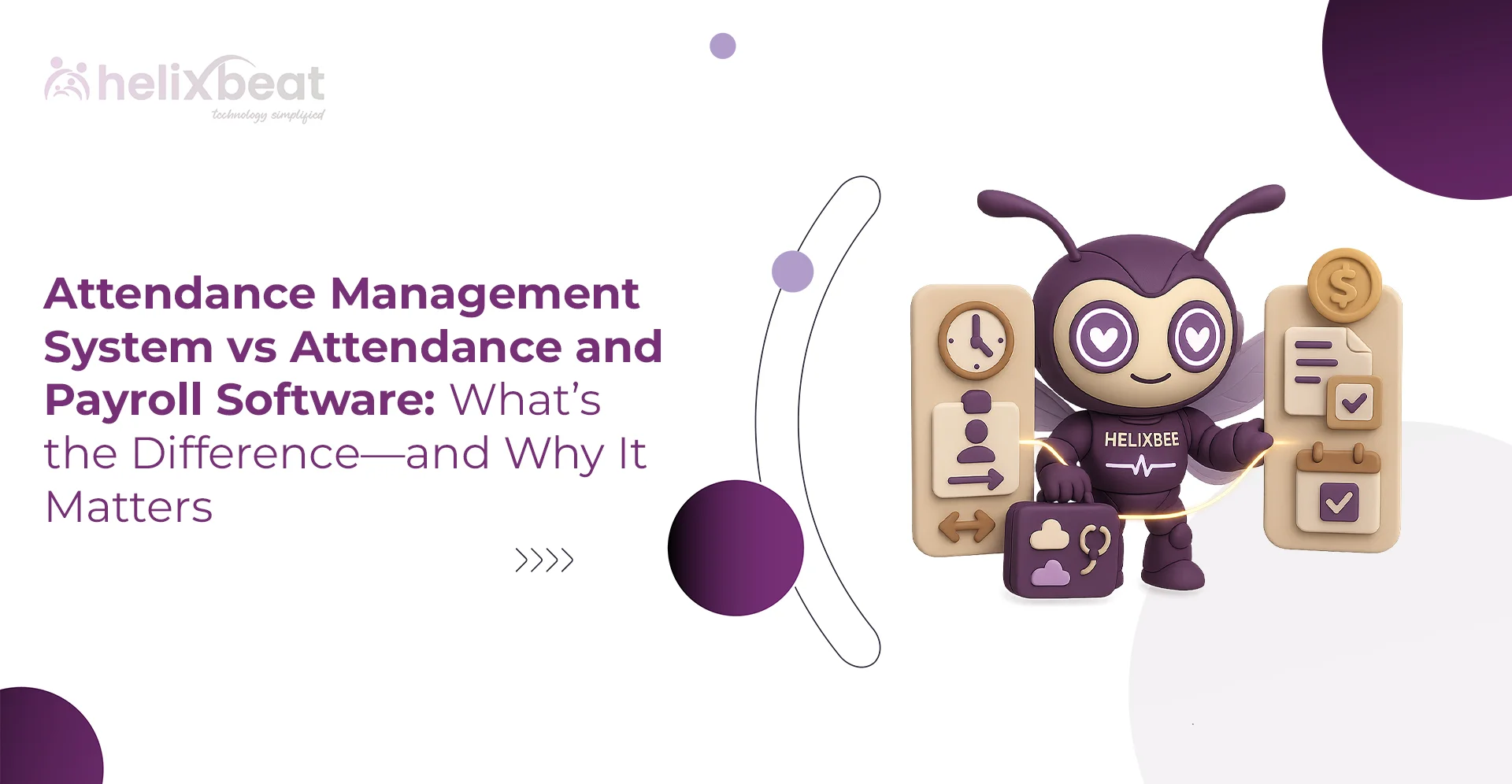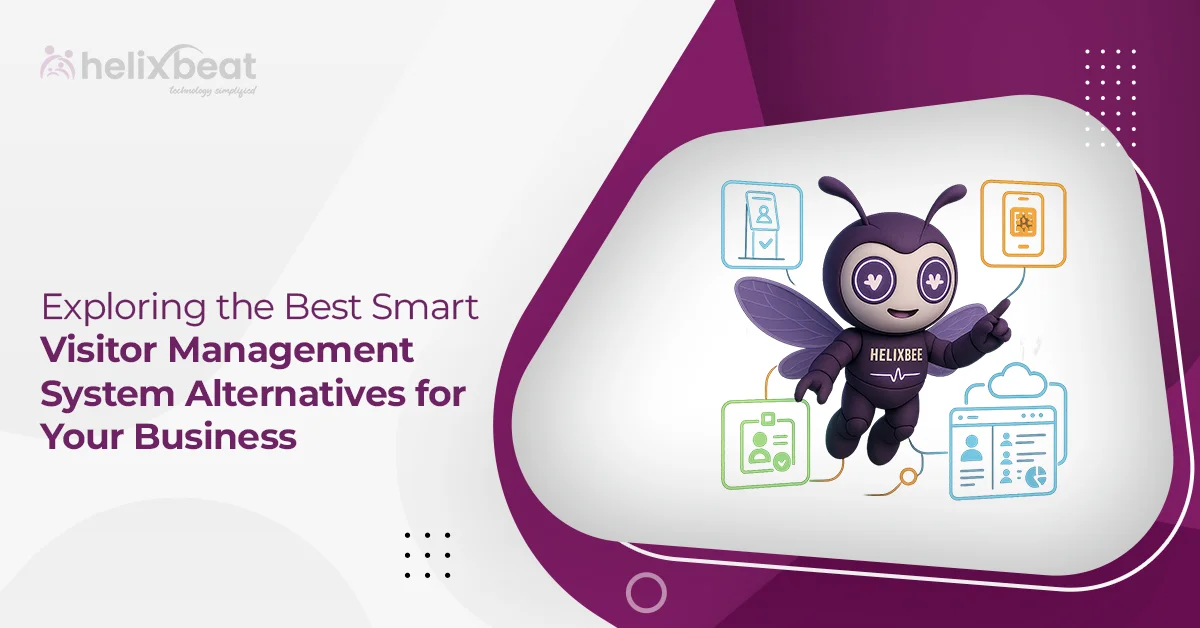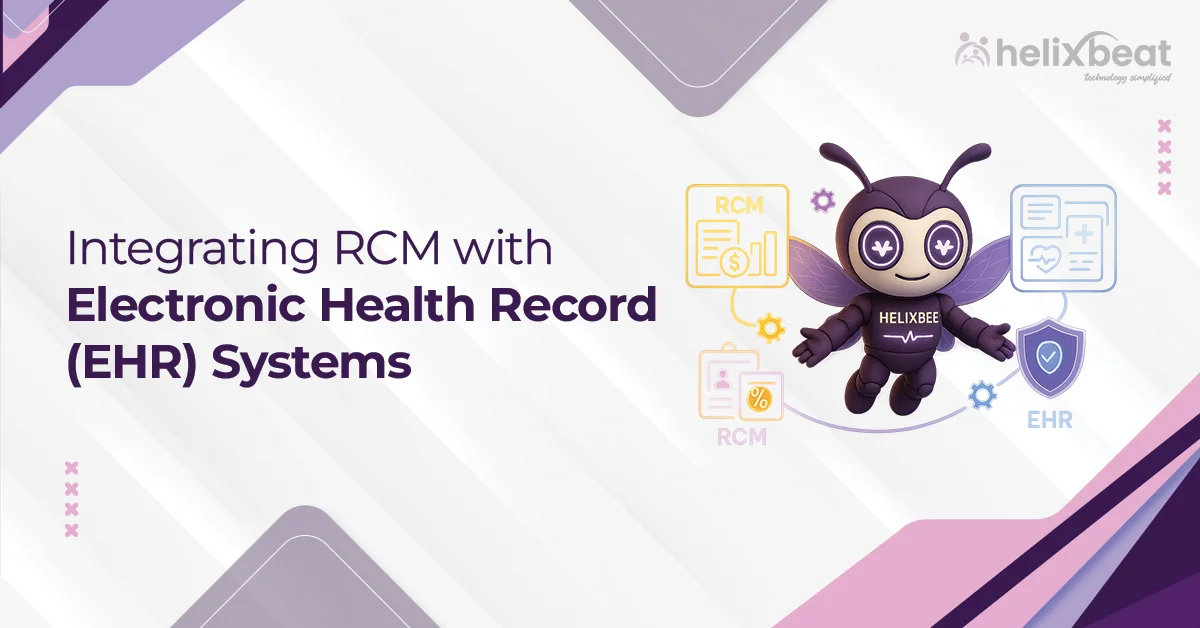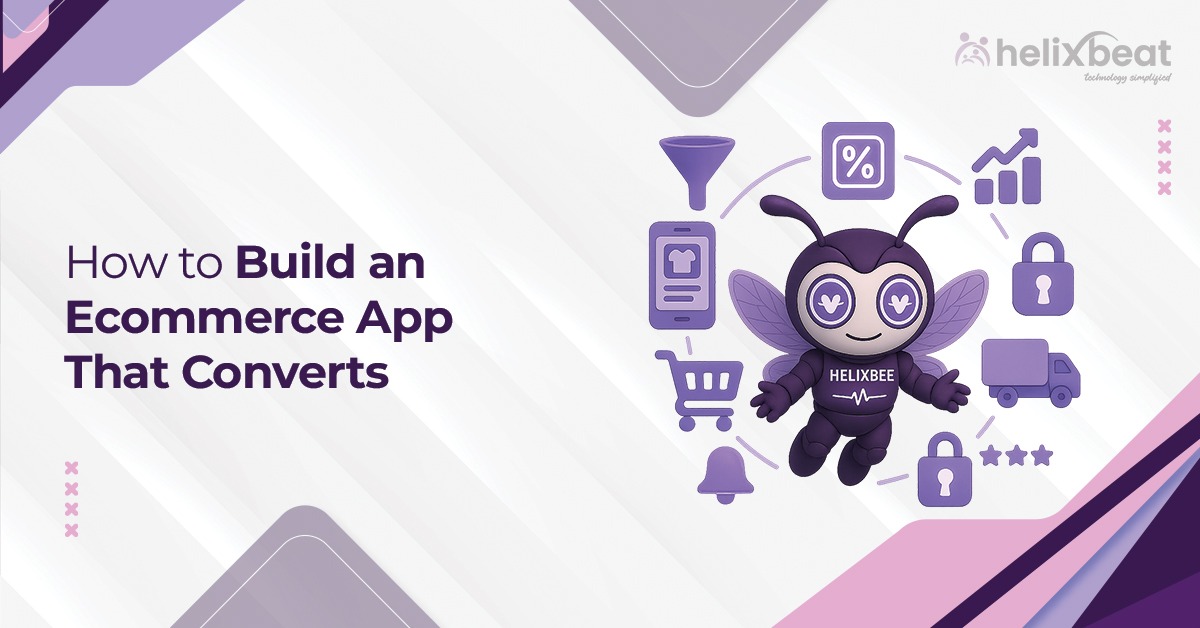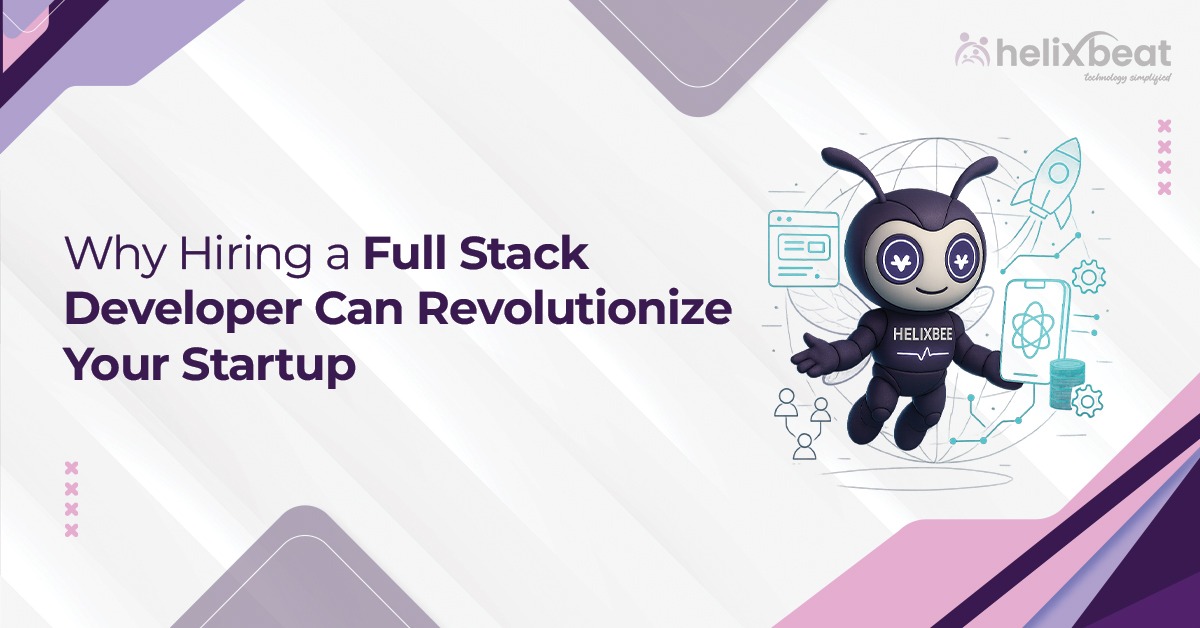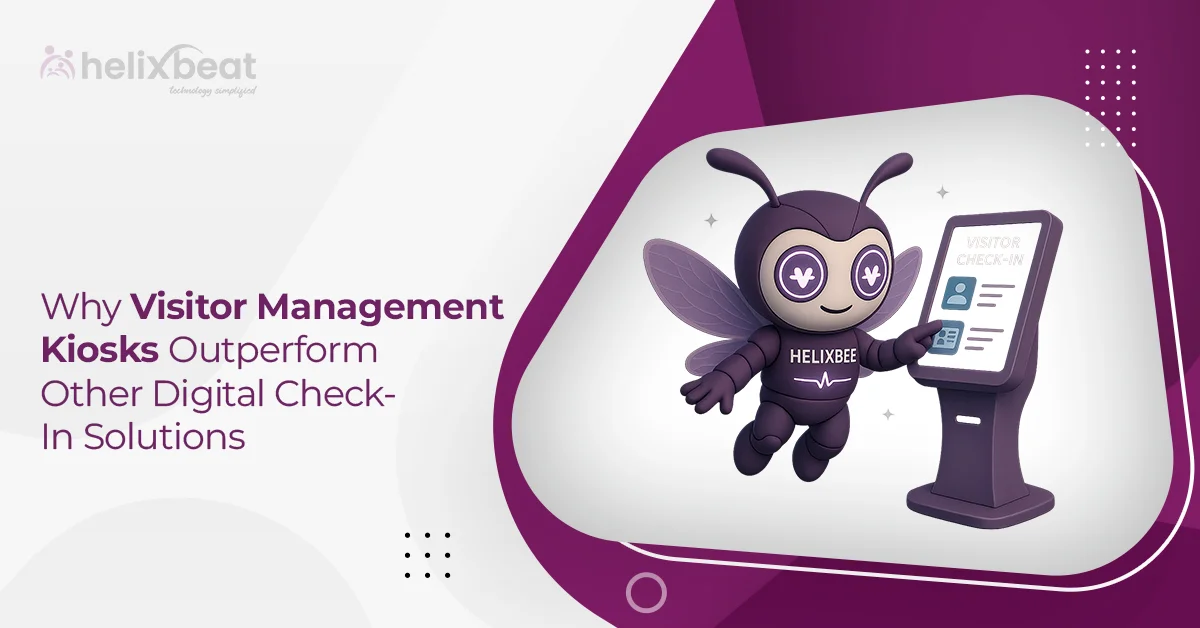Are you seeking a solution that enhances patient experience and care delivery? EHR integration services play a pivotal role in transforming healthcare systems by streamlining patient data management and enabling real-time access to critical health information. With Helixbeat’s advanced solutions, including GENIUS, healthcare providers can seamlessly integrate their Electronic Health Record (EHR) systems, leading to faster decision-making, enhanced communication, and a more personalized patient experience.
By bridging the gap between disparate systems, Helixbeat ensures secure data exchange, ultimately improving patient care and overall healthcare outcomes.
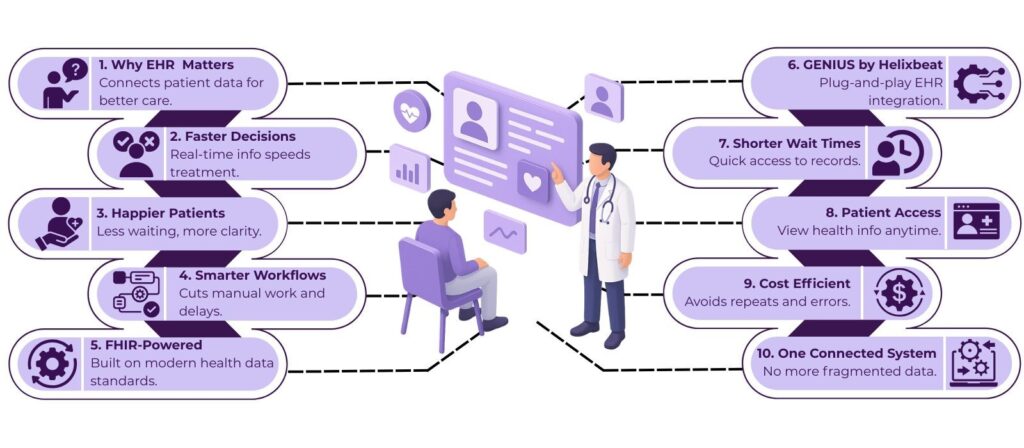
Table of Contents
What Are EHR Integration Services?
EHR integration services enable healthcare systems, including hospitals, clinics, and private practices, to connect their patient data systems seamlessly. These services ensure that patient information is shared securely and consistently across various platforms, improving overall care delivery and decision-making. EHR integration enables healthcare providers to access patient data instantly, thereby reducing errors and enhancing outcomes.
Key components of EHR integration include:
Data Synchronization
- Real-Time Syncing: EHR integration services ensure that patient data is updated and accessible across systems in real-time.
- This means healthcare providers can always rely on the latest information when making treatment decisions.
Interoperability
- Securing Compatibility: Interoperability serves as the foundation for EHR integration services.
- It ensures that diverse healthcare platforms, including electronic health record systems, laboratory systems, and radiology tools, can communicate with each other seamlessly, thereby eliminating barriers to information sharing.
API Integration
- Connecting Healthcare System: Secure Application Programming Interfaces (APIs) are used to connect different healthcare applications.
- This facilitates smooth data sharing, which leads to quicker and more precise decision-making.
- APIs also ensure that sensitive data is exchanged securely between systems.
Top Benefits of EHR Integration with Healthcare
By connecting disparate systems, EHR integration enables healthcare professionals to access critical information in real time, facilitating faster decision-making and improved patient outcomes.
- Enhancing Patient Care with Real-Time Data
EHR integration services enable healthcare providers to access patient data instantly, allowing them to make more informed and timely decisions. Here’s how it benefits patient care:
- Instant Access to Patient Information: Healthcare providers can retrieve up-to-date health records in real-time, enabling them to address patient needs more efficiently.
- Reduced Risk of Errors: With integrated systems, medical professionals are less likely to make errors due to outdated or missing information. This ensures that patients receive accurate diagnoses and treatments.
- Improved Treatment Accuracy: Real-time data integration enables doctors to access comprehensive and accurate patient histories, facilitating more informed and precise treatment decisions.
2. Improving Communication Between Healthcare Providers and Patients
Effective communication is key to providing high-quality care. EHR integration services enhance communication by:
- Seamless Information Sharing: Integrated systems allow different healthcare providers to share crucial patient information quickly and accurately, ensuring everyone involved in the patient’s care is on the same page.
- Reduction of Miscommunication: Clear communication is critical for patient safety. By eliminating information gaps, EHR integration minimizes the risk of misunderstandings and improves collaboration between healthcare professionals.
- Increased Patient Satisfaction: When patients see that their healthcare providers are well-informed and responsive, it enhances their trust and satisfaction, leading to better overall experiences.
3. Streamlined Workflows for Faster Decision-Making
One of the most significant advantages of EHR integration services is the optimization of workflows within healthcare organizations:
- Access to Complete Patient Histories: Healthcare professionals can quickly access a patient’s medical history, lab results, and previous treatment plans, allowing them to make faster, more informed decisions.
- Reduced Wait Times: With integrated systems, healthcare workers no longer need to wait for patient records to be delivered manually. This reduces patient wait times and improves the overall efficiency of healthcare processes.
- Faster Diagnosis and Treatment: Streamlined workflows enable healthcare providers to diagnose and treat patients more quickly, improving both patient outcomes and satisfaction.
How EHR Integration Services Enhance the Patient Experience
Reducing Waiting Times and Improving Decision-Making
By integrating various healthcare systems, EHR integration services significantly enhance the accessibility of patient data, resulting in reduced waiting times and faster decision-making. Here’s how:
- Instant Data Access
- With EHR integration, all relevant patient information, such as medical histories, lab results, and medications is accessible digitally and in real-time.
- This eliminates the need to wait for documents to be transferred manually or search through paper records, allowing healthcare providers to focus on treating patients.
- Elimination of Redundancies
- Often, fragmented systems require patients to repeat the same information multiple times.
- EHR integration services eliminate this redundancy by consolidating data into one secure system.
- This reduces the likelihood of incomplete or missing data, ensuring that healthcare providers always have full access to a patient’s records without needing to re-enter or request details repeatedly.
- Faster Decision-Making
- When healthcare providers can instantly access all relevant information about a patient’s health, they can make quicker and more informed decisions.
- Whether it’s adjusting a treatment plan or determining the next steps in care, immediate access to patient data ensures that no time is wasted waiting for results or paperwork.
- This accelerates the diagnosis and treatment process, allowing patients to receive care much more quickly.
- Reduced Waiting Times
- The integration of EHR systems means that patients no longer need to wait for paperwork, lab results, or test results to be manually transferred or accessed.
- This faster access to information leads to shorter wait times in waiting rooms, as healthcare providers can handle more patients efficiently without sacrificing the quality of care.
What Is FHIR and How Does It Relate to EHR Integration?
FHIR (Fast Healthcare Interoperability Resources) is an emerging standard that simplifies the electronic exchange of healthcare data. It is vital for EHR integration services, enabling seamless information sharing among healthcare systems.
| Aspect | How FHIR Relates to EHR Integration |
| Data Standardization | FHIR provides a consistent format for healthcare data, allowing different EHR systems to communicate and share information seamlessly. |
| Interoperability | FHIR ensures different healthcare systems can exchange data without compatibility issues, enabling smooth and efficient communication. |
| Adaptability | FHIR is flexible, allowing integration with various healthcare technologies and supporting the scalability of healthcare systems. |
| API Integration | FHIR uses APIs for quick and secure data exchange between systems, ensuring real-time access to patient information. |
| Regulatory Compliance | FHIR helps healthcare organizations comply with privacy and security regulations (e.g., HIPAA) during data exchange. |
How Helixbeat’s GENIUS Simplifies EHR Integration
Here’s a detailed breakdown of how GENIUS leverages FHIR to streamline EHR integration:
1. Consistent FHIR APIs for Seamless Data Sharing
- GENIUS offers FHIR-compliant APIs that standardize data exchange across systems, ensuring all details adhere to a constant structure.
- By utilizing FHIR resources for patients, medications, lab results, and more, GENIUS ensures that different healthcare systems “speak the same language,” eliminating the need for custom data converters.
- This uniformity eliminates manual reformatting, thereby reducing mismatches and data-entry errors, resulting in higher data accuracy across platforms.
2. Real-Time, Seamless Data Sharing
- GENIUS utilizes FHIR’s web APIs for real-time data sharing across interconnected systems (EHRs, labs, pharmacies, etc.), improving coordination and care delivery.
- Instead of waiting batch data transfers, healthcare professionals can instantly access updated patient data as soon as changes occur.
- As a part of the GENIUS suite, AERIS automates real-time data exchange across networks, enabling immediate access to lab results, medication changes, and patient updates, thereby reducing delays in patient care.
3. SMART on FHIR for Extensible Integration
- GENIUS enhances its FHIR capabilities by supporting the SMART on the FHIR protocol.
- It enables the secure integration of third-party applications, including telehealth apps, clinical decision support systems, and patient wellness apps.
- With SMART on FHIR, external tools integrate seamlessly with GENIUS, using standardized data models and authentication methods.
- Healthcare providers can enrich their EHR systems with new features, such as mobile apps or AI-driven analytics, without the need for complex custom integration to work.
4. Seamless Cross-System Interoperability
- GENIUS enables cross-system interoperability by utilizing FHIR to connect disparate healthcare providers, allowing patients’ records to follow them across different clinics and hospitals.
- The GENIUS FUSION engine converts incoming patient data into standard FHIR format on the fly, ensuring that it fits seamlessly into the new EHR system without compatibility issues.
- This enables continuity of care, reducing the need for repeated tests and preventing medication errors, as the new care team has access to a full, up-to-date patient record from day one.
5. Enhanced Patient Care and Engagement
- By integrating EHR systems through FHIR, GENIUS provides healthcare providers with a complete 360-degree view of a patient’s health data, including medical history, allergies, treatments, and lab results.
- Having immediate access to comprehensive patient data enables clinicians to make informed decisions, thereby improving care quality and reducing the likelihood of errors.
- GENIUS empowers patients with greater control over their health information, offering secure access to their records through patient portals or mobile apps, which enhances engagement and trust.
- Patients can utilize apps powered by GENIUS to view their test results or share their medical history with specialists, fostering collaborative care and improved health outcomes.
6. Streamlined Provider Workflows and Cost Savings
- GENIUS reduces the need for manual data entry, reconciliation, and information retrieval, automating administrative tasks and allowing providers to focus on patient care.
- Integrated systems ensure that patient records are accessible in real-time, preventing the need for redundant tests and procedures, saving time, and reducing healthcare costs.
- GENIUS helps healthcare organizations save up to $5,000 per patient by reducing processing time and administrative burdens while minimizing costly errors.
- Standardized data formats in GENIUS also expedite the billing process, ensuring claims are submitted promptly and accurately, thereby improving revenue cycles.
7. Alignment with Modern Standards & Compliance
- FHIR as an Industry Standard: GENIUS utilizes FHIR, a globally recognized and endorsed standard by healthcare authorities. This alignment ensures compliance with modern interoperability mandates such as ONC and CMS requirements in the U.S.
- By utilizing FHIR, GENIUS enables healthcare organizations to comply with regulations, thereby avoiding penalties for failing to meet data-sharing and interoperability standards.
- GENIUS integrates robust security features, including encryption and role-based access control, ensuring that patient data remains private and protected throughout the exchange.
The Problem with Fragmented Healthcare Systems
When EHR integration services are not in place, patient data is often scattered across different systems, making it difficult for providers to access complete and up-to-date information. This lack of integration can lead to:
1. Inefficient Workflows
- Healthcare professionals often have to search through multiple systems to find the patient information they need.
- This can delay the start of treatment and create inefficiencies in the workflow.
- Without integrated systems, staff members are required to manually enter patient data multiple times across different platforms, which increases the time spent on administrative tasks.
- When patient records are not unified, healthcare workers may have to repeat the same processes, such as requesting patient information or lab results multiple times, leading to wasted time.
2. Poor Patient Care
- Without a centralized system for patient data, healthcare providers may rely on incomplete or outdated information, which can lead to misdiagnoses or errors in treatment plans.
- Delays in accessing patient information can prevent healthcare providers from making timely decisions, causing unnecessary waiting periods for patients and potentially delaying life-saving treatments.
- When patient data is stored across multiple systems, it’s harder to get a complete and accurate picture of their medical history, leading to fragmented care that doesn’t account for the full scope of the patient’s needs.
3. Higher Costs
- Fragmented systems require more manual effort to enter, process, and verify patient data.
- This increases the workload for staff and contributes to higher operational costs.
- When healthcare providers can’t easily access patient records, they may repeat tests or treatments that have already been performed elsewhere, which leads to unnecessary costs.
- Poor integration between healthcare systems can also increase the risk of compliance issues, resulting in fines and legal costs if data sharing doesn’t adhere to privacy regulations like HIPAA.
Closing Thoughts
Are you ready to enhance your patient care and improve operational efficiency? EHR integration services are essential for healthcare organizations aiming to streamline their processes, enhance data accuracy, and achieve improved patient outcomes.
Helixbeat’s GENIUS platform streamlines EHR integration by providing seamless, real-time access to comprehensive patient data while enhancing both care quality and provider productivity.
Want to improve your patient experience? Sign up for a demo of Helixbeat’s GENIUS today and discover how EHR integration services can transform your care delivery.
FAQs
- What are the benefits of EHR integration?
EHR integration improves data accessibility, enhances communication, reduces errors, and speeds up decision-making in healthcare.
- What is the role of electronic health records (EHR) in improving patient care?
EHR systems provide healthcare providers with real-time, accurate patient data, enabling personalized care and better treatment decisions.
- How can the EHR system improve communication between healthcare providers and patients?
By integrating patient data into one system, healthcare teams can collaborate more effectively and keep patients informed, enhancing care coordination.
- Why is FHIR important for EHR integration?
FHIR enhances interoperability, allowing seamless communication between diverse healthcare systems while ensuring flexibility and cost-effectiveness.



